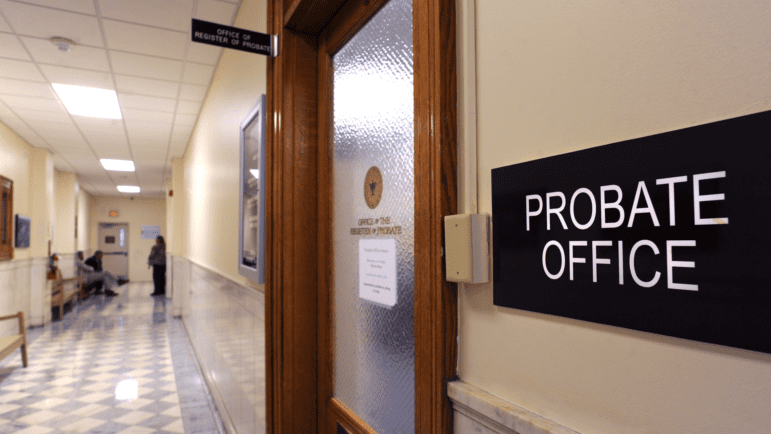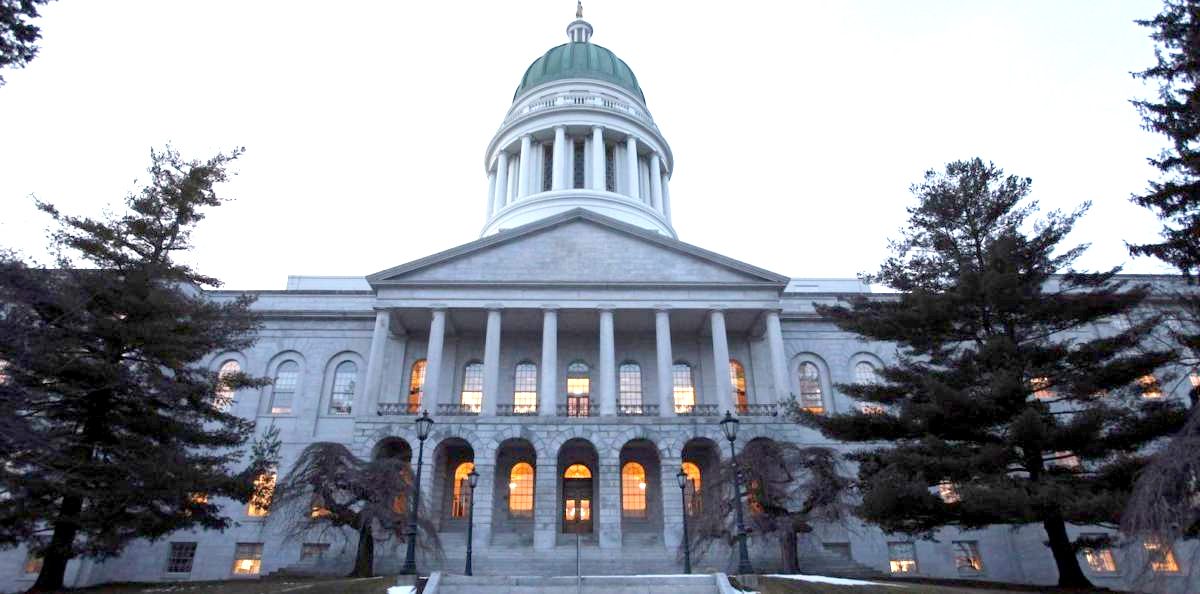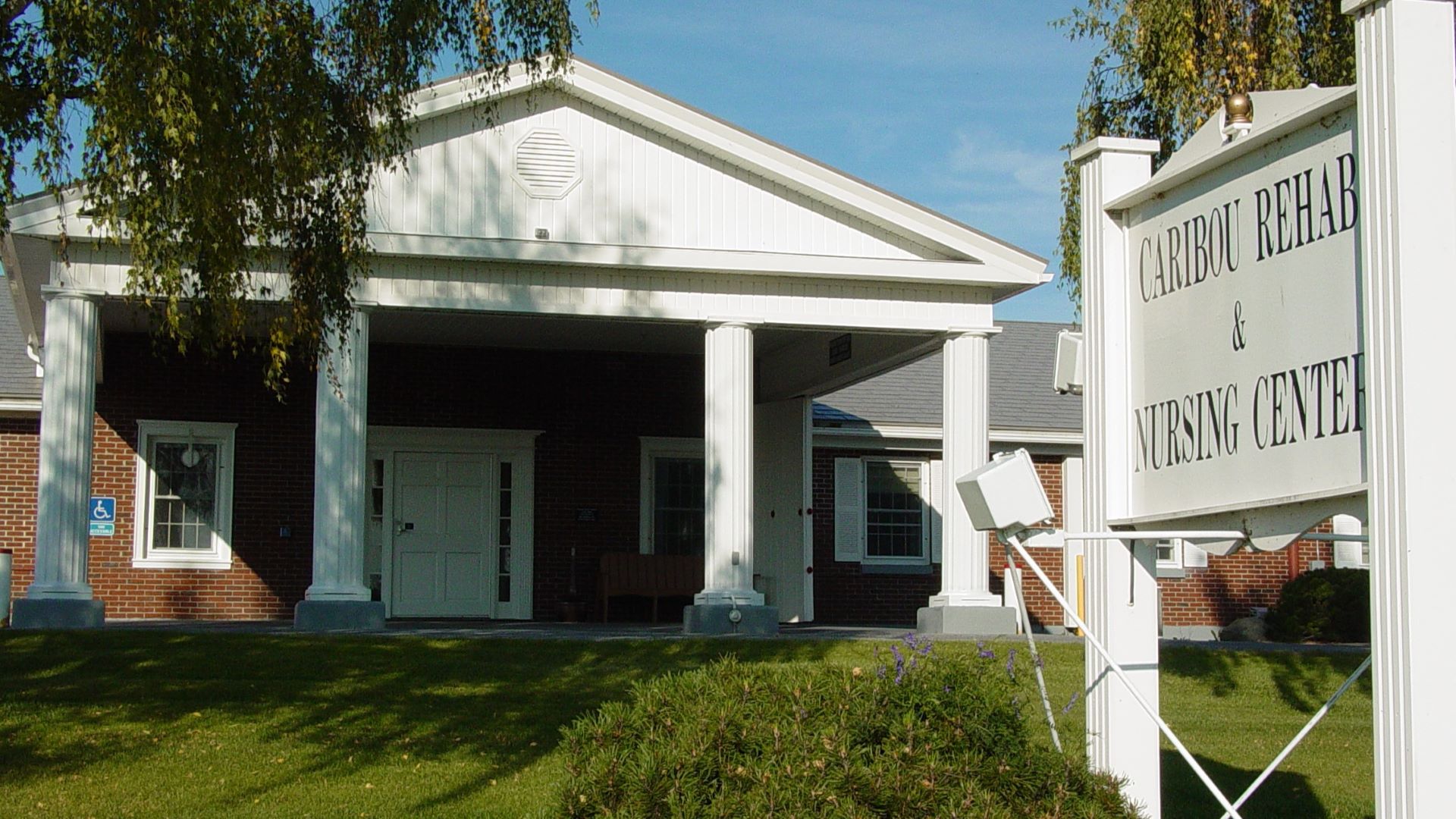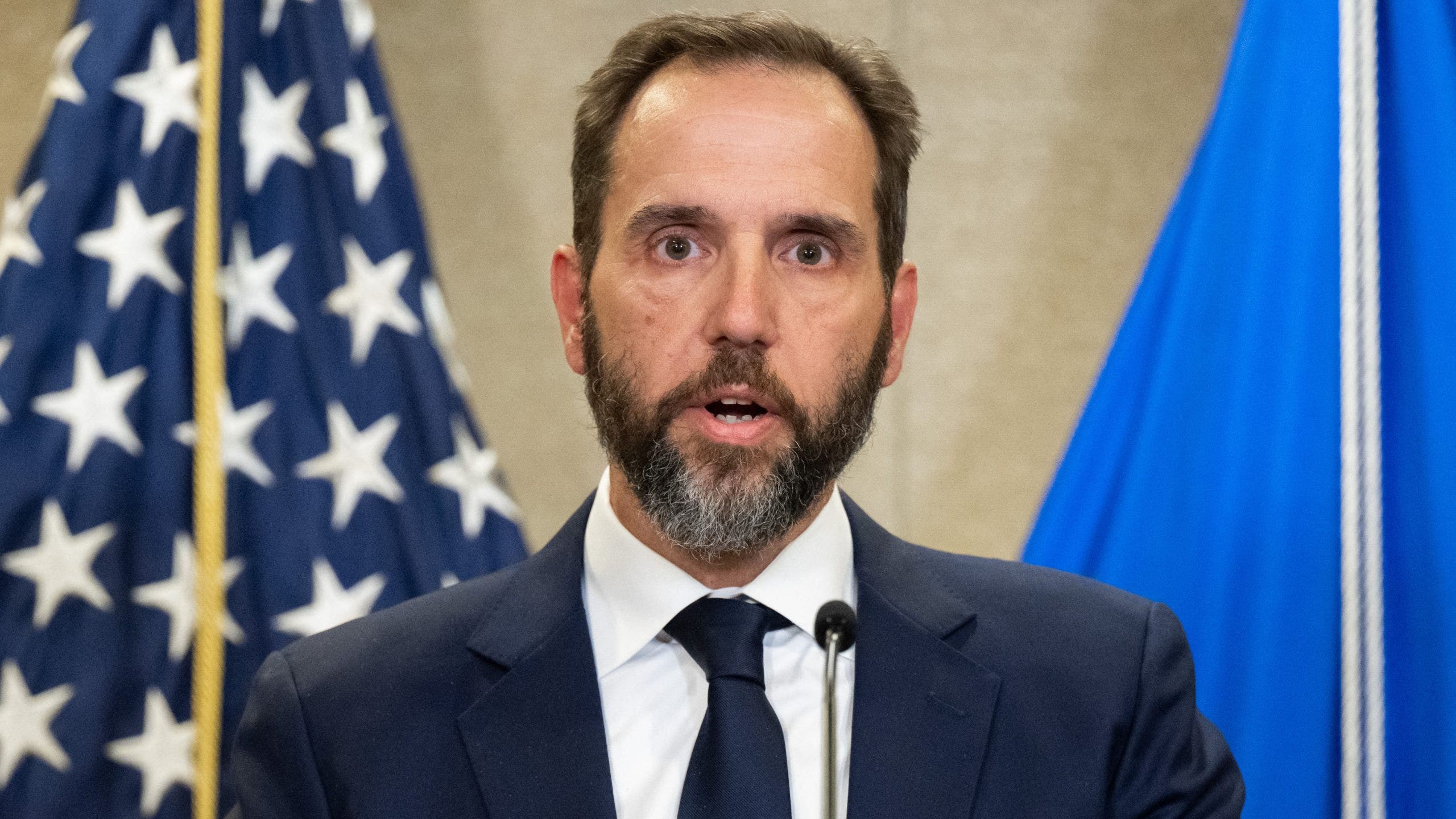Maine
How we investigated Maine's probate courts

We spent a year reporting and writing “Maine’s Part-Time Court” to understand the lives and death of residents in probate court.
Maine’s 16 independent, county-run probate courts are not a part of the state judicial branch. The probate courts are run by part-time, elected judges responsible for monitoring the well-being and financial futures of adults and children under guardianship and conservatorship, as well as the estates of the deceased.
Our interest in the probate courts stemmed from two observations.
One, Maine voters passed a constitutional amendment 56 years ago that would make probate judges full time, but in the five decades since then, the legislature has not completed the steps necessary to implement the will of the voters.
Two, we uncovered systemic problems with other aspects of the state’s courts and justice system, including the lack of a statewide public defenders office and the recording of nearly 1,000 confidential attorney-client phone calls in county jails.
The probate courts are a corner of the state’s judicial system that has been long overlooked despite serving thousands of Mainers.
In April, we sent a survey with 18 questions about staffing levels, the number of guardianships being overseen by the probate court, and financial reviews of conservators to each probate court. The Maine Monitor received responses from 10 probate courts, including Androscoggin, Cumberland, Kennebec, Knox, Lincoln, Piscataquis, Sagadahoc, Waldo, Washington and York counties.
The survey revealed that many probate courts do not know how many adults are under guardianship, or if those people are alive or dead. And many probate courts do not audit conservators or have a method to detect attempted theft.
We observed proceedings at the Cumberland County Probate Court in Portland and Kennebec County Probate Court in Augusta. We also traveled to Bangor and Brunswick to spend the day with two women who shared their stories about being under guardianship, and how the mandate for probate courts to consider a less restrictive alternative to guardianship known as “supported decision-making” affected their lives.
Our observations were supplemented with interviews with 60 people, including probate judges, registers of probate, guardians, adults under guardianship, lawyers, disability advocates, family members, state officials, legislators and a former state Supreme Court associate justice. We also spoke with fraud detection experts in Florida and Minnesota court systems. We made multiple requests to interview the leaders of Adult Protective Services in Maine and were denied each time.
To broaden our understanding of the probate courts, we reviewed hundreds of pages of online probate court records and dozens of attorney discipline decisions where the probate court was mentioned. We also read state studies about financial exploitation of adults, demographics and characteristics of adults who get exploited, and seven decades of government research on ways to overhaul the state’s probate court system.
The Monitor also made public records requests to the Office of the Chief Medical Examiner for data about the causes and circumstances of all adults who died under the state’s care of a public guardian between 2018 and May 2023.
We received an anonymized dataset of more than 200 people. The vast majority of deaths were deemed natural or accidental. The data revealed, however, that medical examiners had rarely done examinations of the deaths of people under public guardianship prior to 2021.
The attorney general’s office also inadvertently sent the Monitor a spreadsheet that contained the names of seven people the medical examiner’s office deemed to have died in “undetermined” ways and one death medical examiners labeled as a “homicide.”
We read 300 pages of probate court records about the eight individuals; tracked down living relatives for interviews; contacted assisted living facilities, veterans homes and private adult foster homes where the eight had died; asked police about their investigations of the deaths — often to be told there was none; and interviewed the leader of the attorney general’s Healthcare Crimes Unit.
Unlike many states, death certificates are confidential in Maine and can only be accessed by family members. The attorney general’s office asked the Monitor not to publish the eight names, but the Monitor decided to publish their full names and details about their deaths to bring public attention to the state’s secretive system responsible for the well-being of some of the state’s most vulnerable people.
In response to the Monitor’s reporting, state lawmakers held a 3½-hour public hearing on Oct. 25 about how the state’s guardianship system operates.
Officials from the probate courts, Maine Department of Health and Human Services, medical examiner’s office, attorney general’s office and Disability Rights Maine were asked to come and speak. The hearing concluded with calls from legislators for more oversight of guardians.
This series “Maine’s Part-Time Court” was supported by a grant from the Fund for Investigative Journalism. The investigation was also made possible by support from Report For America and the Investigative Editing Corps, which allowed Alan Miller and Mike Wagner to join as project editors. Samantha Hogan has been a reporter with The Maine Monitor since June 2019.
Samantha Hogan focuses on government accountability projects for The Maine Monitor. She joined the newsroom as its first full-time reporter in 2019 with Report for America. Samantha was named the 2021 Maine’s Journalist of the Year by the Maine Press Association, and spent 2020 reporting on Maine’s court system through the ProPublica Local Reporting Network. Her reporting on county jails recording and listening to attorney-client phone calls won the Silver Gavel award from the American Bar Association and was also a semi-finalist for the Goldsmith Prize for Investigative Reporting in 2023. Samantha previously worked for The Frederick News-Post and interned twice for The Washington Post.

Maine
Maine photographer offers discounts, free services to same-sex couples who want to get married before inauguration

PORTLAND, Maine (WMTW) – Many people in the LGBTQ+ community are concerned about last week’s election results, as they fear marriage equality protections may change under the new Trump administration.
As a result, a growing number of professional photographers are coming together to offer discounted or free same-sex wedding ceremony coverage.
That list includes Cassandra Fontaine of Koa & Kai Photography, who is based in Maine.
“Personally, in my family, my sister is in the LGBTQ community. My mom is,” Fontaine said. “It was more out of love and just knowing that I know how afraid they are, and I want to support them in whatever way that they can.”
The discounts and free services are being offered to those who are considering moving their wedding timelines up to between now and January.
It is important to note the Trump administration has not announced any plans to challenge marriage equality.
Same-sex marriage has been legal in Maine since 2012, which is three years before the landmark U.S. Supreme Court case that legalized same-sex marriage across the country.
In its Obergefell v. Hodges decision, the Supreme Court ruled that all 50 states must allow and recognize same-sex marriages under the due process and equal protection clauses of the 14th Amendment.
Copyright 2024 WABI. All rights reserved.
Maine
11 Maine legislative races headed to recounts, including one tie

Eleven races in the Maine Legislature that were contested on Nov. 5 are headed to recounts, the Maine secretary of state’s office announced Wednesday.
Ballots will be recounted in nine House races and two Senate races. Recounts will start on Friday and continue through Nov. 25.
Preliminary counts included a dead-even tie in House District 141, and three races where the margin between the apparent winner and loser was fewer than 20 votes.
The results below are unofficial preliminary counts provided by the secretary of state’s office.
House District 44
William Pluecker – 2,731
Ray Thombs – 2,369
House District 52
Sally Cluchey – 2,748
David Guilmette – 2,732
House District 58
Sharon Frost – 3,158
Daniel Newman – 3,114
House District 75
Stephan Bunker – 2,318
Randall Gauvin – 2,308
House District 81
Peter Wood – 2,835
Joan Beal – 2,816
House District 96
Michel Lajoie – 2,550
Kerryl Clement – 2,514
House District 98
Kilton Webb – 2,995
Guy Lebida – 2,941
House District 141
Patricia Kidder – 2,476
Lucas Lanigan – 2,476
House District 142
Anne-Marie Mastraccio – 1,938
Amy Bell – 1,874
Senate District 8
Leo Kenney – 10,112
Michael Tipping – 10,229
Senate District 15
Richard Bradstreet – 10,820
Raegan LaRochelle – 10,621
Maine law does not have mandatory recounts, but when the apparent margin of victory is 1 percent or less in statewide or multi-county races, or 1.5 percent or less in legislative or single county races, a candidate can request a recount free of charge.
When the margin is larger, the candidate must pay a deposit. That money is refunded if the result is overturned by the recount.
Wednesday was the last day that a candidate could request a recount in a non-ranked-choice race, according to the secretary of state’s office.
Maine
Transgender support groups in Maine see spike in contacts after election

Transgender support groups in Maine said they are seeing a spike in contacts similar to those reported by national LGBTQ+ groups since Donald Trump’s election last week.
Bre Danvers-Kidman with the Maine Trans Net said about 100 people came to the group’s post-election support event and that many others have reached out through various platforms in the week since.
Some have expressed fears about losing their gender affirming care, the potential roll back of Title IV protections and a rise in harmful rhetoric.
Danvers-Kidman said that though there is valid concern about federal funding for care being rolled back, Maine has its own protections in place.
“We have the good laws here, we have the infrastructure to fight those battles with. And so to the extent that those battles rear their heads, Maine is going to be a place where I feel like we can fight them and we can win,” Danvers-Kidman said.
They expressed confidence that the “good laws” in Maine would remain, even if policy changed at a federal level.
“If the state offers greater protection to citizens than the federal government, the state wins. And so those greater protections that Maine offers to trans people, those will hold. I expect those to hold,” Danvers-Kidman said.
The Trevor Project, a national suicide prevention organization for LGBTQ+ youth, reported a 700% increase in crisis contacts the day after the election.
-

 Culture1 week ago
Culture1 week agoTry This Quiz on Books That Were Made Into Great Space Movies
-

 Health6 days ago
Health6 days agoLose Weight Without the Gym? Try These Easy Lifestyle Hacks
-

 Culture6 days ago
Culture6 days agoThe NFL is heading to Germany – and the country has fallen for American football
-

 Business5 days ago
Business5 days agoRef needs glasses? Not anymore. Lasik company offers free procedures for referees
-
/cdn.vox-cdn.com/uploads/chorus_asset/file/25538361/247196_Echo_Spot_Review_8A0A1511_CVirginia.jpg)
/cdn.vox-cdn.com/uploads/chorus_asset/file/25538361/247196_Echo_Spot_Review_8A0A1511_CVirginia.jpg) Technology1 week ago
Technology1 week agoAmazon’s Echo Spot alarm clock is on sale with a free color smart bulb
-

 Sports6 days ago
Sports6 days agoAll-Free-Agent Team: Closers and corner outfielders aplenty, harder to fill up the middle
-

 News3 days ago
News3 days agoHerbert Smith Freehills to merge with US-based law firm Kramer Levin
-
/cdn.vox-cdn.com/uploads/chorus_asset/file/25724877/Super_Nintendo_World.png)
/cdn.vox-cdn.com/uploads/chorus_asset/file/25724877/Super_Nintendo_World.png) Technology4 days ago
Technology4 days agoThe next Nintendo Direct is all about Super Nintendo World’s Donkey Kong Country





















